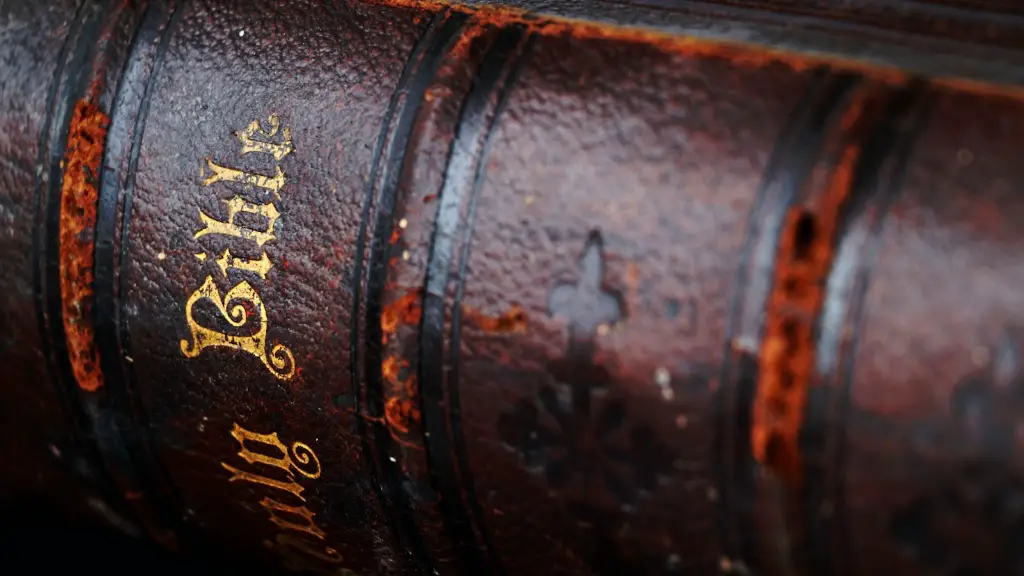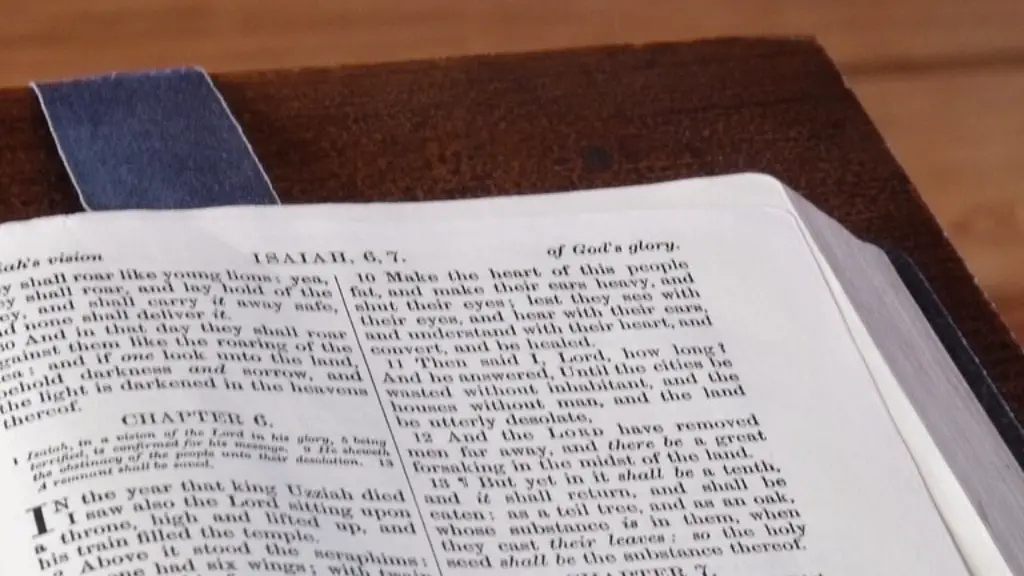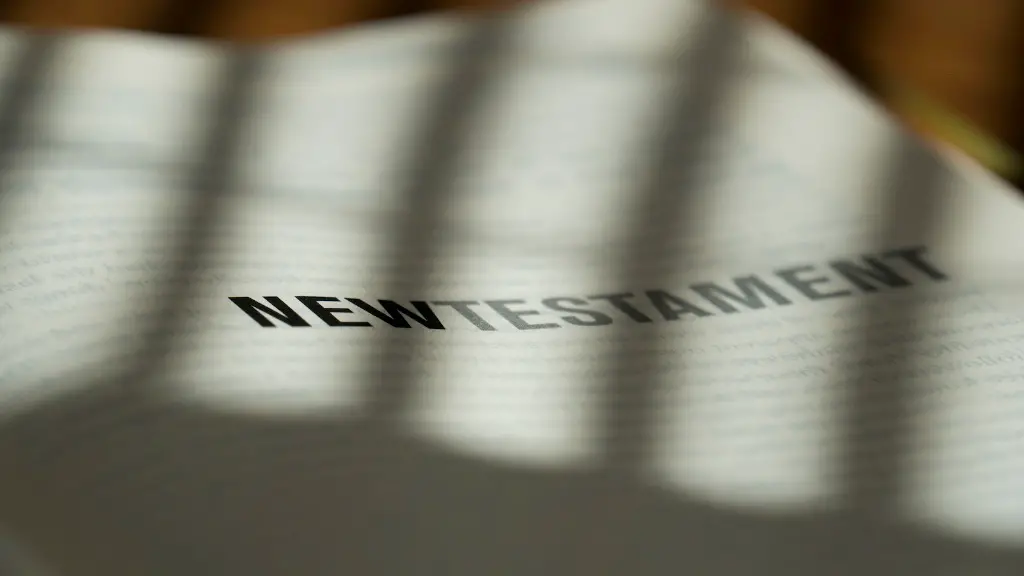Casting lots is an ancient method of choosing by a chance. It has a long and varied history, finding its mention in the Bible, literature, and other historical records. By some accounts, it dates back to the period of tribal societies in the Paleolithic era and was used to choose a sacrifice, decide on commercial transactions, or to settle disputes. In the Bible, several instances of casting lots are mentioned to draw conclusions by a random selection. This article will expound on what casting lots in the Bible is and explore the various issues that it has raised.
The practice of casting lots was traditionally based on the belief that God, or some higher authority, had control over the final outcome. It was believed in certain cultures that the outcome of casting lots accurately revealed God’s will. In the parlance of the Bible, it is referred to as purim or divining, from the Hebrew verb meaning “to cast.” It was also used to allocate any kind of tasks, such as the drawing of lots by the Israelites to determine which tribe would possess certain lands.
While the practice dates back to ancient times, the use of actual objects has varied over the centuries. In the Old Testament, stones, sticks, coins and other sacred objects were used to cast lots. In some cases, the use of objects was so closely associated with casting lots that particular objects such as stones, dice, or coins became known as “purim”, a term that is still used today for any object used for divination or prediction.
For many years, scholars have argued that casting lots was a way for the biblical authors to emphasize a solemn ritual for determining God’s will. Some theologians have interpreted the practice of casting lots in the Bible as an act of faith in a higher power, while others have argued that it was a way of avoiding human responsibility. In either case, it’s clear that casting lots was an important part of how the authors of the Bible sought to make decisions.
Other experts suggest that the practice of casting lots in the Bible sought to emphasize its writers’ faith in a kind of cosmic balance, where individuals were held accountable to the laws of nature, and those laws were seen to be both punitive and rewarding. This view supports the idea that casting lots was an effective way to create an honest, impartial outcome. In this view, the practice of casting lots sought to promote a sense of justice in the decisions that were made.
Whatever one’s personal opinions on this practice may be, there can be no denying that casting lots has been used widely and historically, particularly in the Bible. It has been a part of many cultures, and its association with faith and divine power is undeniable. Some have argued that it is grounded in superstition and should be avoided in modern decision making, while others believe that it can still have a place in our lives today.
The Role Of Casting Lots In Modern Society
In recent years, casting lots has become a popular method of making decisions in today’s society. While much of the traditional mysticism associated with it has diminished, many people still use it as a way of making a decision when they are uncertain or feeling powerless. It is commonly used in games, lotteries, and other forms of entertainment, as well as in some business and organizational settings.
Casting lots has also been used as a form of therapy by some, who believe that it can be a way of giving structure to a chaotic situation and facilitating a sense of renewal. For example, some people use casting lots to resolve conflicts amongst a group. They cast lots to decide which individual will serve as a final decision maker, or to assign the responsibility of tough decisions to whoever is chosen.
Critics of modern interpretations of casting lots argue that it undermines personal accountability and encourages irresponsible decision making. For instance, some argue that it denies individuals the chance to take responsibility for their decisions, allowing them to take chances without having to face consequences. Despite these criticisms, casting lots continues to be used as an informal decision-making process in many parts of society.
Overall, it is clear that casting lots remains a part of modern society. Whether or not it is a beneficial tool is open to debate, and it is ultimately up to individuals and groups to decide for themselves if it is an appropriate and desirable way to make decisions.
Modern Casting Lots Methods
In our modern society, there are many different ways people can cast lots. Arguably the most common type is the use of a coin, which involves flipping it in order to decide an answer to a question or dispute. People also use dice or cards to cast lots. There are also computer-based methods of casting lots, such as random number generators and dice-rolling apps. Many people find these modern approaches more convenient, as they provide results without the need for any physical objects.
Additionally, modern practitioners of casting lots often incorporate elements of the Bible, particularly in the form of fortune-telling. For instance, some practitioners use divination tools such as tarot cards or numerology to gain insight into their lives. While this is a personal practice, it may be seen by some as being at odds with biblical texts, while others may see it as an acceptable personal spiritual practice.
The Pros And Cons Of Casting Lots
In general, the practice of casting lots has both pros and cons. On the plus side, many people find it a quick and convenient way to reach a consensus when faced with a difficult decision or situation. It can also be a way of avoiding direct confrontation and conflict, enabling individuals to make decisions in a low-pressure environment.
On the other hand, casting lots can encourage risk-taking behaviour, as individuals may be encouraged to take chances without considering the consequences. Additionally, it can be seen as a way of avoiding responsibility, as the individual who casts the lot may be less directly accountable for the outcome. Lastly, casting lots can lead to a false sense of security, as it relies on chance rather than careful consideration of the evidence.
Conclusion
Overall, it is clear that casting lots has been a popular practice throughout history, and it continues to be used in many different settings today. While it has its advantages, including convenience and the ability to avoid direct confrontation, its reliance on chance can lead to irresponsible decision making. Ultimately it is up to each individual to decide if they feel comfortable using this method to make decisions.



